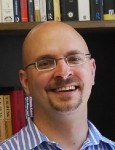| Context and Conversation in a Stand-alone MA Program |
![PDF-NOTE: Internet Explorer Users, right click the PDF Icon and choose [save target as] if you are experiencing problems with clicking.](http://rsnonline.org/templates/rsntemplate-smallmasthead/images/pdf_button.png) |
 |
|
Page 1 of 3 Kent L. Brintnall, University of North Carolina, Charlotte
“Remember, They are Not Little Doctoral Students”The best piece of teaching advice I ever received came from Joyce Flueckiger while I was a teaching assistant at Emory University. “You must remember,” she began, with emphatic gravity, “they are not little doctoral students.” Given in the context of my worries about the amount of reading I planned to assign in an undergraduate course, Flueckiger’s advice helped me reconsider my notion that I must provide a comprehensive treatment of a topic. Her counsel still rings in my ears when I create or evaluate assignments or when I talk with students about study habits and professional goals. The core principle, as I understand it, is that relying on my recollection of what motivated me and interested me, what I found valuable, and what I was willing to do as a (doctoral) student may only hinder, not help, my teaching. As I have tried to meet the specific challenges of teaching in a stand-alone MA program, Flueckiger’s comment has proven especially pertinent. Master’s students are not doctoral students, even if — perhaps especially if — they aspire to that status. If I can’t rely on my experience as a PhD student, on what can I rely as I prepare my Master’s students to become doctoral students? And what about those who have no desire to cross that threshold? Flueckiger’s observation reminds me to attend to the specific details of the learning environment at hand to make sure I am teaching to the actual, rather than the imagined, situation. In other words, I must be reflective about the context in which I am teaching and I must engage in conversation to understand it. This means that there are very few one-size-fits-all strategies, and that the most useful concrete teaching practice I can develop is the capacity for reflective adaptation. What, then, are the contextual details of which we must be mindful when teaching in a stand-alone MA program? First and foremost, given their relative scarcity, most professors of religion were not trained in such a program. Even if it were advisable to rely on our memories of graduate education, we have no store of experiences that mirror our students’ context. Most of us received Master’s degrees either en route to the PhD or at institutions that granted PhDs. In either case, we interacted with doctoral students. While completing my Master’s degree at the Graduate Theological Union, for example, I had several seminars that included doctoral students: I saw how they analyzed texts, formulated questions, selected research topics, and handled the pressures they faced. At the same time, because I was getting a MA in a context where most students were pursuing MDiv degrees, I gained a sense of what it meant to study religion as an academic pursuit rather than as one dimension of vocational preparation. Because the University of North Carolina, Charlotte, has neither doctoral programs in the humanities nor a professional track for those studying religion, students in our stand-alone MA program have neither aspirational nor comparative examples among the student body from which to form their identities. Without doctoral students as aspirational models, professors not only unwittingly and unwillingly become exemplars, but must sometimes intentionally place ourselves in this position. As much as we don’t want our students to feel compelled to write or think like us, we must also recognize that unless they learn to write and think like us, they will probably not succeed in the academy. For me, this has meant being forthcoming about my writing practices and work habits, and my struggles with confidence and professional jealousy. It has meant talking with students about “positioning” and “marketing” themselves. It has meant offering very specific advice about how to manage progress through the MA program. It has also meant being attentive to the ways in which I become a site of both unhelpful admiration and unacknowledged hostility. At the same time, it has created opportunities for reflection on and conversation about whether students genuinely want a career in the academy. By detaching the PhD from the MA, students must choose the former, rather than stumble into it as an inevitability. |


 Kent L. Brintnall is an associate professor in the department of religious studies and an affiliate faculty member in the Women’s and Gender Studies Program at the University of North Carolina, Charlotte. His teaching focuses on gender and queer theory, film studies, cultural studies, and literary theory. Brintnall is the author of Ecce Homo: The Male-Body-in-Pain as Redemptive Figure (University of Chicago Press, 2011). His current projects include a collection of essays on Georges Bataille and the study of religion (co-edited with Jeremy Biles) and a solo-authored book on Bataille and queer theory.
Kent L. Brintnall is an associate professor in the department of religious studies and an affiliate faculty member in the Women’s and Gender Studies Program at the University of North Carolina, Charlotte. His teaching focuses on gender and queer theory, film studies, cultural studies, and literary theory. Brintnall is the author of Ecce Homo: The Male-Body-in-Pain as Redemptive Figure (University of Chicago Press, 2011). His current projects include a collection of essays on Georges Bataille and the study of religion (co-edited with Jeremy Biles) and a solo-authored book on Bataille and queer theory.